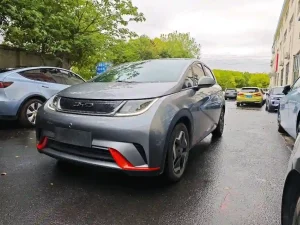Despite having been established in the market, Peugeot has struggled somewhat with popularity of late. Sales of the brand in China were less than 1% of total passenger vehicle market by volume, barely reaching around seventy-two thousand units a year while mark did reach its peak level back in 2015 when it sold about four hundred and ten models. This is an ominous sign, symbolizing the challenges faced by The Big Three in keeping their brands fresh alongside hot new models from foreign and domestic automakers. The coronavirus pandemic and Tesla's limited updates to its aging models, poor brand perception in the market, and an "inability to keep pace with consumers' changing tastes" among Chinese buyers are responsible for this decline.
DPCA (Dongfeng Peugeot-Citroën Automobile), a joint venture between Peugeot and Dongfeng Motor Corporation) manufactures locally developed models. But most of these models, like the 408 sedan and 3008 SUV, have not been able to challenge better established offerings such as Toyota's top-selling Corolla compact cars or Honda's CR-V small-to-medium off-roader against perennial Volkswagen title-holder. This has hurt Peugeot's sales dramatically, as value-for-money-price ratios are an extremely important selling point in a market where brand esteem and reliability is key for buyers. A Peugeot is a fringe player in the world's largest automotive market: just 2% of Chinese car buyers planning to buy won over by them during surveys conducted from February through March next year.
In China, Peugeot offers the 508 L as well as SUVs like the 4008 and 5008 that based on mid-size sedan and crossover platform. Even with aggressive pricing ranging from 130,000 RMB to as much as 250,000 RMB what we've seen is that these models have been bettered by more established alternatives from multinational companies who can provide stronger brand recognition together with superior after-sales service and technology. Take the 508L, which lines up in a segment dominated by the Toyota Camry and Honda Accord—two rivals with larger dealer networks and stronger resale value.

Peugeot has only met with partial success for its efforts in revamping the brand with renewed design and better technology. While lauded in Europe for its ergonomic appeal and modern interface approach, the brand's characteristic i-Cockpit interior arrangement clearly doesn't resonate with Chinese customers as much. Plus, as the electric vehicle (EV) market in China has grown tremendously over recent years, Peugeot's lack of a convincing EV offering has seen it fall behind rivals like BYD and NIO that have taken advantage by focussing on budget-friendly yet well-equipped cordless models.
However, in the China used car market where Peugeot has met with some success by selling cheaper 308s to budget-focused customers. This is lower than $10k, but it's still a large portion (about 30-40%) of the car's original price - tempting for cash-poor buyers looking for something with European styling. Due to the niche nature of European cars in cities a fair few China used cars for sale platforms now carry Peugeots on their inventory.
Although it still features in the country, Peugeot's profile has since faded significantly and as a result returning to its peak point would be an almighty challenge. Moving forward, Peugeot would have to better respond the local market's needs; potentially rolling out more EV offerings and improving its after-sales service association with world largest automotive market.